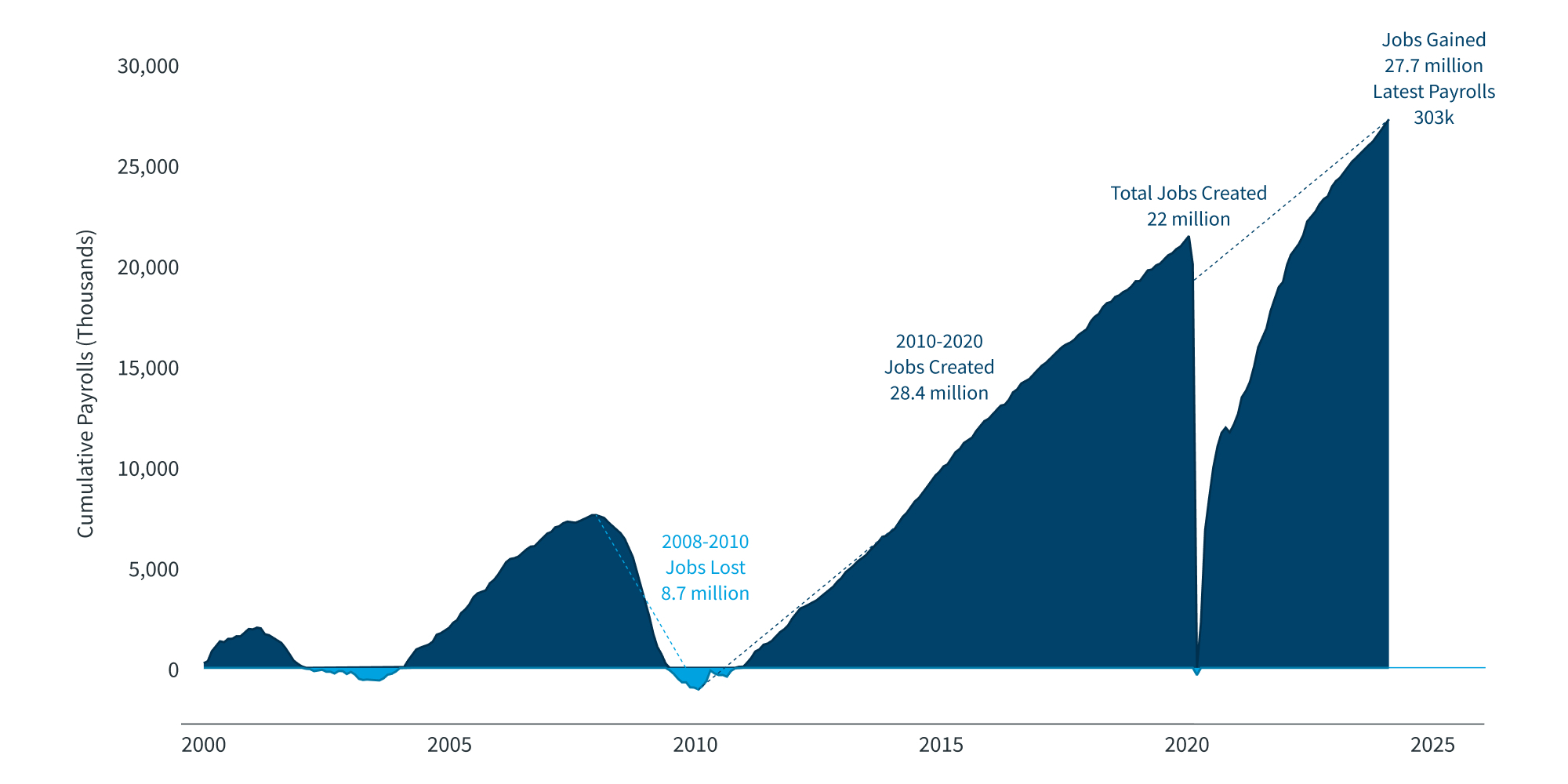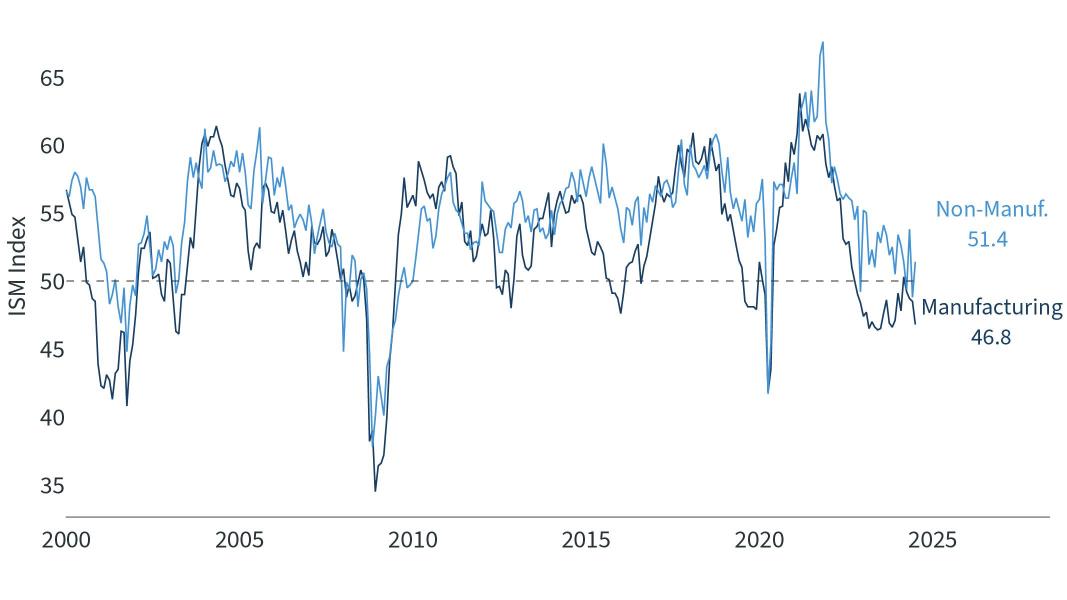How Business Leaders Can Navigate the Presidential Election Year
4/30/2024 1:00:00 PM

As we get deeper into a presidential election year, media coverage is ramping up and will likely grow more intense as Election Day approaches. Recent polls suggest the rematch between President Joe Biden and former President Donald Trump could be a close one. As a business owner, what, if anything, does a presidential election year mean for you, and how should you approach the months to come?
Bipartisan government policies enabled a historic rebound from the pandemic recession

Bipartisan Policies Can Work Despite Who Holds White House
As we all know, the government can and does have an impact on the economy. During an election year, it’s easy to think in terms of what one party can accomplish over another, but in many cases both parties can actually work together in a productive way. Let’s specifically look at the government’s economic response to COVID-19, where policies enacted during both Trump and Biden’s presidencies helped businesses navigate and rebound from the initial impacts of the pandemic.
Faced with spiking unemployment in March 2020, Congress passed the CARES Act, a $2.2 trillion economic stimulus bill. The bill was unanimous in the Senate and nearly unanimous in the House, and was signed into law by then-president Trump. It included one-time cash payments to individuals plus the creation of the Paycheck Protection Program (PPP), which provided loans to small businesses to help with employee retention.
When Biden took office in 2021, he signed the PPP Extension Act, in addition to passing reforms to the program to provide targeted funding to small businesses. The bipartisan CHIPS Act, later passed in August 2022, allocated $52.7 billion for domestic semiconductor manufacturing to reduce supply chain disruptions caused by the pandemic and create jobs in the United States.
These examples show that no matter who is in the White House at the time, both Democrats and Republicans can work together despite differing economic priorities to pass legislation benefitting the overall economy. In other words, no matter who wins the election, the potential for meaningful economic legislation will still exist.
The economy has grown under both parties

Sometimes, Economic Conditions Matter More Than Politics
As the above chart shows, economic growth has historically been positive across long periods of time, spanning both Democratic and Republican administrations. When economic downturns occur, the president in office at the time often receives much of the blame. However, at least in several specific cases, downturns have happened as a result of business cycle contractions rather than who’s holding office. Take, for example, the early 1980s recession, the 2001 dot-com crash, the 2008 global financial crisis, and the 2020 pandemic – all were related to underlying economic activity that had little to do with the party in power.
But, of course, a president’s policies or priorities still matter. Legislation regarding taxes, trade, industrial activity and antitrust can have a real impact on specific industries, which in turn can affect the broader economy. These policy changes are often incremental, though, and it’s difficult to predict ahead of time the specific impact any potential policy will have. For that reason, business owners should focus more on economic fundamentals, such as those related to the business cycle, rather than worrying about any changes an election could bring.
Focus on Your Business, Not the Headlines
Elections have limited short-term impact on the stock market

Businesses have experienced periods of strong growth under both Democratic and Republican presidents, with the stock market also performing well under both political parties. As the chart above shows, claims that a particular candidate or party would cause the market or economy to crash are often overstated. Business owners would be wise to stay focused on long-term strategies for growth, rather than the latest attention-grabbing headlines.
While the outcome of the election will certainly be significant in many ways, it’s crucial for business owners to recognize that the success of their organization will depend more on strategic planning than political events. Rather than worrying about what may happen in November, business leaders should take advantage of any opportunities that exist today. By staying focused on your long-term goals, you can successfully navigate the challenges of 2024 – and beyond.